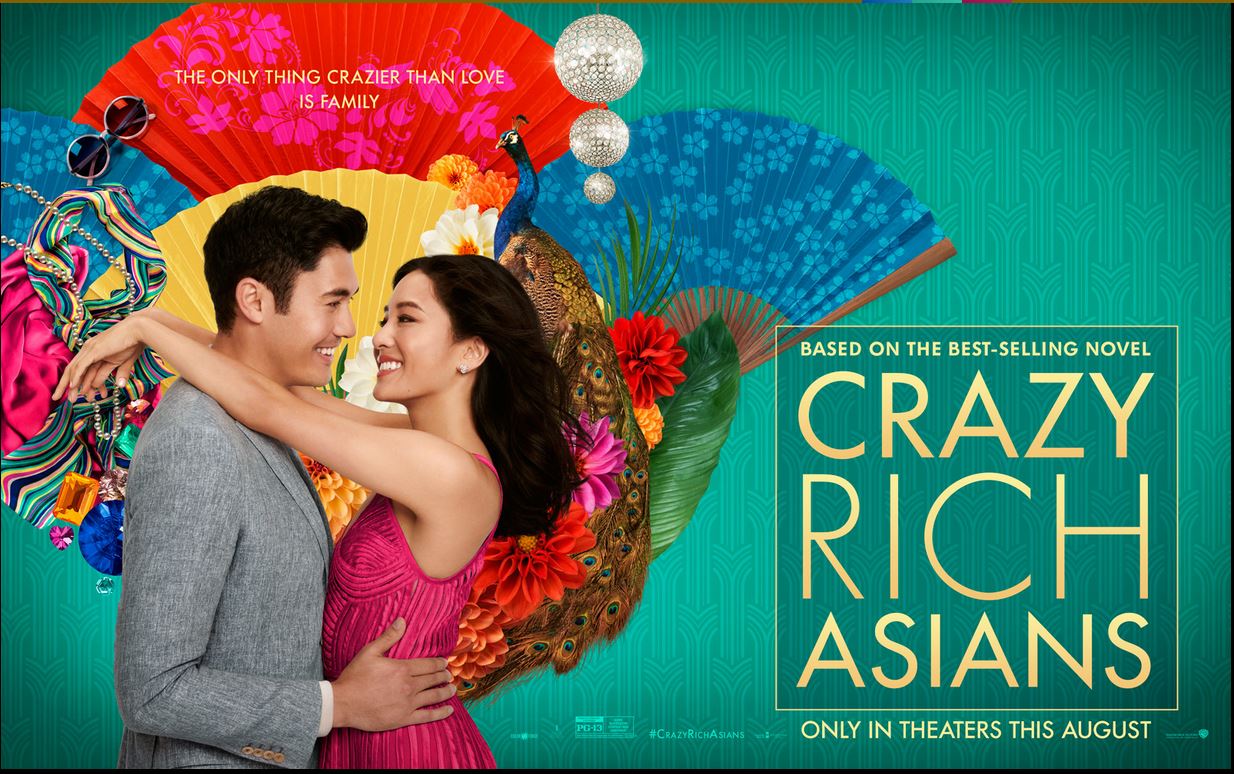UHCL alum's feature film about wealthy Asians offers rich insights, cultural perspective
August 22, 2018 | UHCL Staff

Quite a bit of buzz has surrounded the release of the movie based on University of
Houston-Clear Lake alumnus Kevin Kwan’s best-selling book, “Crazy Rich Asians,” which
premiered Aug 15. Fans of Kwan’s “Crazy Rich Asians” trilogy have been flocking to
see the romcom, but according to UH-Clear Lake’s Associate Professor of Humanities
Shreerekha Subramanian, who specializes in Asian American and South Asian literature
and cinema, the movie’s impact on American entertainment culture will continue to
resonate far beyond this summer.
“In the past, Hollywood has not paid much attention to Asians. The last film that
really reached the masses and capitalized on Asian actors was (the 1993 film) ‘The
Joy Luck Club,” Subramanian said. “That movie undid a century of stereotypes about
Asian women who generally played the exotic ‘geisha’ type, or the exploited or maligned
characters. That film rounded out the characters and for the first time, allowed audiences
to see Asian women in powerful roles.”
Similarly, Kwan’s novel rendered into film by director, Jon M. Chu, spotlighting an
all-Asian cast, are important for a number of reasons. “His novel offers us a romantic,
powerful Asian male hero figure who is super wealthy,” she said. “Rather than being
tokenized, Asian masculinity is center stage on the Hollywood screen.” Although the
plot centers on the lives of a tiny group of ultra-wealthy Asian families in Singapore,
“they’re humanized. It offers Americans a new narrative about Asian lives,” Subramanian
said.
Until now, she explained, Asian literature in America has focused on the Asian immigrant
narrative — their struggle to gain a foothold in a strange land and finding their
place in the American Dream, all the while remaining somehow in the shadows. “This
novel and the movie break away from that narrative, which by late 20th century, almost
became a cliché,” she said.
Things have certainly changed. Bloomberg reports that the world’s wealthiest individuals
are rolling forward with Asian billionaires in the lead. In the last year, Asian economic
expansion has created, on average, a new billionaire every second day. “With that
rise in capital, Asians are now driving the story about what we think about wealth
and status,” she said. “This is a story about the lives of people told through the
power of their money. That makes this story about Asian Americans even richer — pun
intended.”
This glimpse into the lives of the super-ultra-wealthy in that part of the world has
facilitated a conversation into the popular domain that has not previously taken place.
Subramanian added that the American public has never encountered characters like Kwan’s
— globe-trotting billionaires who are part of a culture that possesses its own supremacy
and doesn’t bow to American wealth.
“One can certainly have a critique of capital and how this film might not address
the disparities of wealth distribution within a very diverse Asian American population,
but what the film succeeds in doing is offering representations of Asian American
success in an unabashed way,” Subramanian said. “These are fully-rounded, complex
characters. Kevin Kwan depicts a tiny echelon of Asian society who are the game changers,
and by putting Asians in the middle, Kwan and Chu reinvigorate these erased characters
in the minds of Westerners.”
And by erased, Subramanian said, she means disappeared. “There’s quite a bit of scholarship
on how people of color are represented in Hollywood and how they’ve been relegated
to the margins. There’s a certain active erasure of people of color that’s been at
work in the structure of cinema,” she said. “Generally, the camera focuses on the
hero-heroine and others, while on screen, disappear and we don’t think of them. In
directing this movie, Chu’s agenda is to bring more diverse people to the center of
stories, and because of his example, more people in Hollywood can start doing that
as well.”
Subramanian said that while at the theater she noted many Asians in the audience who
seemed to take pride in seeing an all-Asian cast on the big screen. “There was a real
sense of joy in the theater,” she said. “There’s a sense of empowerment and a feeling
of belonging. As an immigrant people, you know you have arrived when the screen mirrors
your face back to you. It’s important for kids to see people who look like them in
the movies.”
To learn more about UHCL alumnus Kevin Kwan, read an interview with him from earlier this summer.
About the Author:
Recent entries by
October 18 2022
Better technology transforms campus safety: Police Chief demonstrates SafeZone to students
October 14 2022
Student's skill with drones takes chicken turtle research to new heights
October 11 2022
Planting event to help UHCL restore native plants to campus, support environmental sustainability







